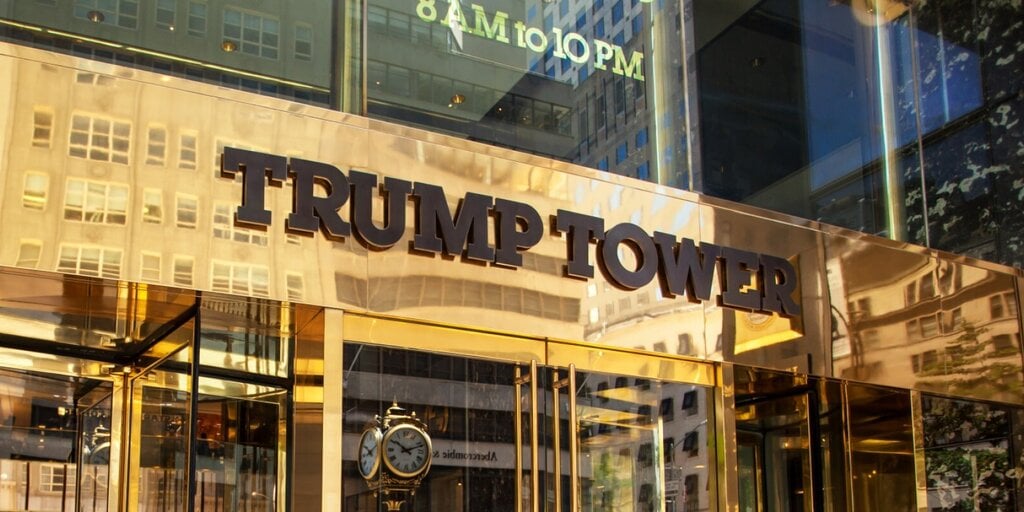Trump Organization's Ambitious Dubai Tower to Accept Cryptocurrency Payments
In a striking move within the ever-evolving landscape of digital finance and luxury real estate, the Trump Organization is poised to unveil its billion Trump International Hotel and Tower in Dubai, a venture that will accept cryptocurrency payments for its lavish residences. This announcement marks the organization’s latest foray into the dynamic property market in the Gulf region, further cementing Dubai’s status as an emerging hub for high-net-worth individuals and crypto enthusiasts alike.
During an interview with The National, a leading news outlet in the United Arab Emirates, Eric Trump, the son of former President Donald Trump, highlighted the city’s growing significance on the global stage. He asserted, “Dubai has really become the epicenter for so many people wanting to invest from all over the world — Europe, the Asian continent, Africa.” His enthusiasm reflects a broader trend: Dubai’s successful marketing efforts have attracted a diverse array of international investors eager to capitalize on the city’s favorable business climate and real estate offerings.
A Luxurious Addition to Dubai's Skyline
The Trump International Hotel and Tower, which is anticipated to be completed within the next five years, is set to feature an array of upscale amenities. The development will incorporate a luxury hotel, high-end residences, a private clubhouse, and indeed, the world’s highest swimming pool, further enhancing Dubai’s reputation for opulence.
Pricing for the apartments will range considerably, with three- and four-bedroom units poised to start at approximately million, while the two penthouses are expected to command a staggering .4 million each. This aligns with the broader trends within Dubai’s property market, which has consistently attracted foreign investments, particularly from individuals seeking refuge from geopolitical uncertainties and economic instability in their home countries.
Behind the Luminary Facade: Dubai’s Controversial Reputation
However, beneath the polished facade of Dubai’s burgeoning real estate market lies a complex and often troubling narrative. The city has attracted scrutiny for its perceived role as a conduit for illicit financial activities. Investigative reports indicate that Dubai has long been favored by individuals looking to launder money or escape regulatory scrutiny, given the opacity that characterizes many of its financial dealings.
Recent revelations from a data leak have brought to light how property purchases have been utilized by criminal entities and sanctioned individuals to stash their wealth in Dubai’s glittering real estate sector. The Organized Crime and Corruption Reporting Project (OCCRP) has noted that the city’s status as a financial sanctuary is not only beneficial to legitimate investors but also poses significant risks in terms of facilitating organized crime, money laundering, and other illegal activities.
The Trump Family's Expanding Crypto Ventures
In conjunction with real estate developments, the Trump family’s engagement with the cryptocurrency industry has expanded dramatically. Initially marked by the launch of branded NFTs, their endeavors have burgeoned into a diverse range of crypto-related initiatives that include meme coins, advisory roles, and broader engagement with digital asset markets. This newfound interest aligns synergistically with Eric Trump’s recent advisory role with Metaplanet, a Japan-based firm, underscoring a growing commitment to innovative financial technologies.
This wave of activities has not gone unnoticed on the global stage, with Eric Trump also poised to make an appearance this week at Token2049 in Dubai, a significant cryptocurrency conference. His participation, alongside notable figures in the tech and crypto sectors, including entrepreneur Justin Sun, highlights the evolving discourse surrounding the intersection of digital assets and traditional business practices.
Navigating Regulatory Frameworks
As the Trump Organization navigates its ambitious projects in Dubai, the family is simultaneously advocating for more accommodative cryptocurrency regulations within the United States. This juxtaposition of interests prompts a critical examination of how emerging markets, such as Dubai, leverage cryptocurrencies to entice foreign investment while navigating regulatory challenges back home.
In conclusion, as the Trump Organization further embeds itself into Dubai’s illustrious real estate market, the intertwining narratives of opulence and regulatory scrutiny will likely continue to dominate discourse. The acceptance of cryptocurrency for high-value property transactions sets a precedent that could redefine luxury investments globally, inviting interest from a spectrum of investors while simultaneously spotlighting the pressing need for transparency in financial markets.
Tags
#BusinessNews #RealEstateNews #UAE

